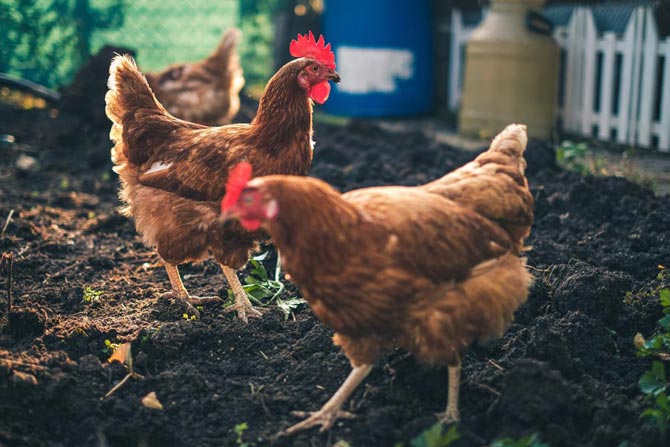It seems the coronavirus pandemic has resulted in a spike in the requests for and ownership of backyard chickens. Yet, many owners don’t know what’s involved in good chook care.
It’s uncertain whether the increase in demand for backyard chickens is to do with the availability of staples in the local supermarkets (not that chickens lay toilet rolls!) or a result of isolation boredom.
Nonetheless, it appears the demand for backyard chickens is high. Craig Hogarth of Laymour Poultry Farm in Vineyard, NSW, told the media demand has been unprecedented. “I normally sell about 380 to 400 a month if I am lucky, but I am now totally out of stock.”
While some sellers ensure they teach their buyers how to look after chickens, not all take the time to educate on optimum chicken care.
Backyard chickens: the basics
Pet professionals, be it vets, dog walkers, pet sitter or pet groomers, may find themselves receiving more and more questions from backyard chook owners. After all, if you know how to groom a dog, you must know how to care for a chook!
Of course, taking care of chickens is very different from looking after the health and welfare of a dog, or a cat for that matter. However, having a few advice points up your sleeve can be helpful. When it comes to the basics of taking care of backyard chickens, the following rules apply.
- Chickens need a dry, secure coop and a fenced-in outdoor run
- If the coop is on grass, it’s preferable to have a wire mesh on the bottom – to help prevent foxes from digging under the coop and eating the chooks
- The minimum space for a chicken run is one square metre per chook
- Chickens can be fussy; it’s essential they have continuous access to fresh, clean water
- Most local councils will not allow residents to keep roosters in built-up neighbourhoods due to noise
- Before getting chickens, potential owners should be encouraged to weigh up not only the cost of the chicken (this includes the cost of the coop, food and preventative treatments) but also the time required to clean out the coop regularly and let the chickens out to run.
- It’s also worthwhile to look at the myriad health issues that can affect chickens. Signs of a healthy chicken include: clear eyes, active, bright red cone, smooth feathers and a clean bottom!
You don’t need a degree to own backyard chooks—or do you?
The rise in ownership of backyard chickens teamed the lack of knowledge many first-time chicken owners have about chicken care has led to the introduction of a clever online course.
The bright sparks at Barastoc have introduced a ‘Hengineering Degree’ aimed at chook parents. The free online resource allows new owners of backyard chickens to clue-up on critical information about chook welfare and provides a useful refresh for long-time owners.
The Hengineering Degree has four modules:
- Physical and nutrition
- Enrichment and behaviour
- Environment and accommodation
- All about the egg
It’s a great resource for giving chicken owners all the know-how they need to keep their backyard chickens healthy and happy.
Spring chickens
Spring is a particularly busy time for chickens, as it’s their egg-laying season. While chicken owners may enjoy gathering all the eggs, they might not stop to think about the needs of their feathered friends.
As pet professionals, you can promote the importance of health check-ups for chickens and the increased need for optimum nutrition during spring.
Bree Avery, general manager—nutrition and technical at Barastoc, advises, “Chickens are very stoic and shy when it comes to showing their health issues, which means that if you don’t know what to look for, you can often miss the signs until it is too late.
“Chickens can very easily develop nutritional imbalances, such as calcium deficiency, but these health problems can be avoided if you have the right know-how and nutritional support.”
So if you have a client who needs some additional know-how on the topic of chickens, encourage them to sign up for the Barastoc Hengineering Degree.
Related posts
Latest posts by Liz Walden (see all)
- Pet health: Medicinal cannabis for pets - December 27, 2021
- What pet business insurance do I need? - November 17, 2021
- Pet sitters: how to take time off - November 15, 2021










Leave A Comment